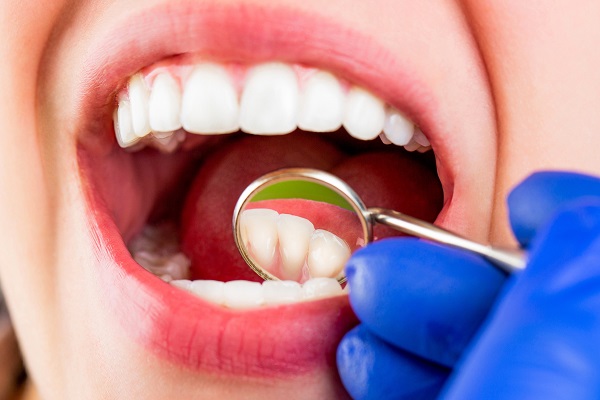How Preventive Dentistry Can Keep Cavities from Forming

The goal of preventive dentistry is to keep teeth and gums clean and healthy in order to reduce the risk of cavities and other oral health concerns developing. It is a good idea to have a full understanding of how preventive dentistry can protect your smile and what services a dentist may recommend for cavity prevention.
Preventive dentistry and cavities
General dentists typically offer a range of dental services, including diagnostics, preventive dentistry, and restorative care. However, the long-term focus is on cavity prevention, along with the prevention of other common oral health concerns such as gum disease, oral infections, and dental trauma.
What is preventive dentistry?
Preventive dentistry refers to the dental services that are performed to prevent oral health concerns, rather than treat issues that have already developed. This includes regular dental cleaning and check-up visits to detect any signs of a concern as early as possible, and to help prevent the build-up of plaque and tartar on the surface of teeth and along the gum line, which are common indicators that suggest cavities, gum disease, and other issues are more likely. Providing educational services to help patients protect their teeth between dental visits is also an important aspect of preventive dentistry.
What preventive dentistry services help with cavity prevention?
Cavity prevention is one of the main focuses of preventive dentistry. During each check-up visit, the dentist checks for any early signs of enamel decay. This includes discoloration of the tooth and a build-up of plaque and tartar. If the dentist detects any concerns, then they may provide a special fluoride treatment to strengthen the weakened enamel and reduce the risk of cavity formation. For some patients that are particularly vulnerable to cavities on the chewing surface of molars and premolars (especially children), the dentist may recommend dental sealants.
How often are dental cleaning and check-up visits needed?
Many patients who take care of their smile between dental visits (see below) only need a check-up and cleaning visit every four to six months to prevent cavities. More frequent visits may be necessary for patients that have a higher risk of developing cavities.
How can I reduce the risk of cavities between check-ups?
Preventive dentistry is important for cavity prevention. However, the majority of the work should take place at home between visits. The dentist can help the patient establish a consistent and quality oral care routine that can help prevent cavities. This should include brushing, flossing, and using a fluoride mouthwash as recommended. Certain foods and drinks (such as those high in sugar) should be limited as well to protect the enamel from acidic attacks and decay.
Schedule a visit to find out how preventive dentistry can benefit you
One of the primary goals here at our dental practice is to prevent oral health concerns before they are able to develop. We offer a range of diagnostic and preventive services, in addition to restorative care when oral health concerns do occur. Contact us today to schedule a consultation.
Request an appointment here: http://www.southburydental.com or call Southbury Dental Care at (203) 278-5337 for an appointment in our Southbury office.
Check out what others are saying about our dental services on Yelp: Preventive Dentistry in Southbury, CT.
Related Posts
Our general dentist recommends brushing with a toothpaste that contains fluoride to give your teeth the highest level of protection possible against tooth decay. Fluoride is a naturally occurring chemical that helps to re-mineralize and strengthen teeth enamel.Fluoride can be found in natural bodies of water, as well as many fruits and vegetables like grapes…
Visits to your general dentist are done routinely, which for most people is twice per year or every six months. Sometimes, your dentist may recommend a deep dental cleaning. What is that? In this article, we will review what a dental cleaning is and when you might be due for one.Just like spring cleaning in…
Among the most common dental problems that a general dentist treats are cavities. Most people will experience this form of tooth decay at some point due to:Dry mouthSugary foods and drinksPoor oral hygieneGeneticsThere are several types of cavities, and each can lead to complications without prompt treatment.A general dentist first considers a cavity's location when…
A general dentist is frequently called upon to diagnose and treat dental abscesses. Failure to get treatment for this infection can have serious health consequences.A tooth is said to be abscessed when a pocket of pus forms due to a bacterial infection. Patients who exhibit symptoms of an abscess should see a dental professional.People experiencing…
